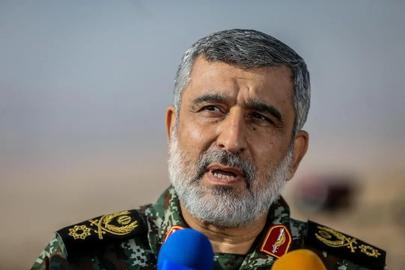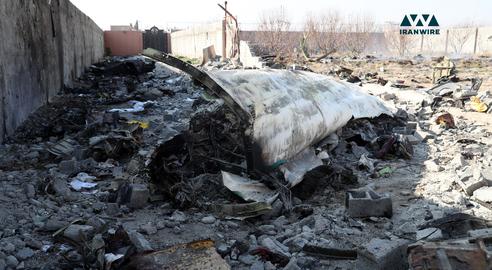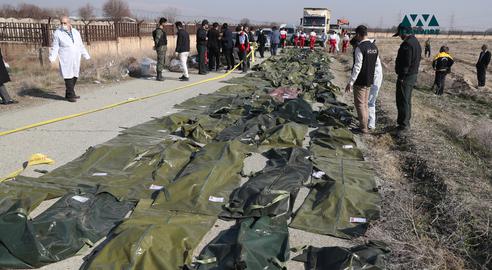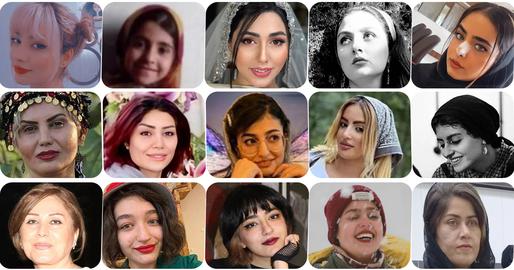Brigadier General Amir Ali Hajizadeh, commander of the Aerospace Force of the Islamic Revolutionary Guard Corps (IRGC), has said that his force wants to “take revenge” for the assassination of General Ghasem Soleimani, former commander of the expeditionary Quds Force, who was killed by an American drone on January 3, 2020, outside Baghdad International Airport, by killing former US President Donald Trump, former Secretary of State Mike Pompeo, General Frank McKenzie, the former commander of the US Central Command, and others involved in Soleimani’s death.
The Revolutionary Guards did fire missiles at an American airbase in Iraq, Ayn al-Asad, after the missile strike which killed Soleimani. Speaking on state television, General Hajizadeh claimed that, by attacking the airbase, the IRGC did not seek to kill American soldiers but wanted to strike a blow at the “prestige” of the American military.
But the missile strike was not enough, it seems, and the IRGC Aerospace Force commander has now said that the Guards have built hypersonic missiles to which there is no defense, and that these missiles can target US Navy ships from 2,000km away. But “out of respect for the Europeans,” the commander added, the IRGC would not increase the missile beyond this limit.
“We hope the Europeans will honor this sign of respect,” he said sarcastically, in his state television remarks, perhaps hoping to deter the European Union (EU) from placing the Revolutionary Guards on a list of terrorist organizations. The EU has been under considerable public pressure in recent months to do so – ever since Iran’s nationwide protests and ensuing crackdown began last year with the death of Mahsa Amini. The IRGC is already on the US list of terrorist organizations. The assassination of General Soleimani occurred less than a year after the US State Department declared the Revolutionary Guards a terrorist organization.
International law technically barred Iran from taking reciprocal action against the United States for Soleimani’s killing, because when two countries are not in a state of armed conflict, any response cannot be in the form of a military action. The international legal framework also prohibits sates from taking “revenge” by killing civilians in response to a dispute or grievance.
But it seems the Islamic Republic avoided targeting American soldiers in Ayn al-Asad Airbase not out of respect for international laws, but because it knew that, if it killed American soldiers, the American response would be both heavy and grave.
General Hajizadeh has said, however, that the IRGC was prepared to “launch 400 missiles as the first stage of operations” at American targets, if the US had responded to the Iranian reprisal attack on Ayn al-Asad Airbase. He added that US bases in countries close to Iran, including Kuwait and Jordan, would have been targeted.
Hours after the IRGC’s attack on Ayn al-Asad Airbase, two missiles fired by the IRGC’s Aerospace Force shot down Ukraine International Airlines Flight 752, killing all 176 crew and passengers, most of whom were Iranian nationals. For three days, the Iranian government covered up the facts concerning this tragedy, but eventually accepted responsibility by blaming it on “unintentional human error”.
Following its attack on Ayn al-Asad, why Iran did not close its airspace to civilian flights, if it expected a response by the US? The fact that General Hajizadeh has said that Iran had 400 missiles ready to attack American targets, in case of a US response, leaves little doubt that refusing to close Iranian airspace to civilian flights was intentional and was meant to create a human shield against an American retaliatory military action.
Statements made three years after the tragedy of the Ukrainian passenger jet, General Hajizadeh has himself provided an explicit reason for not closing Iranian airspace.
“If the Americans had any honor, they should have done something and we were really prepared for further action … We had anticipated that we would launch missile attacks on all American bases in Kuwait, the United Arab Emirates and Jordan,” Hajizadeh has said. And he has made similar points several times over the past three years – that Iran was braced for a response. And yet, despite this readiness, the Islamic Republic violated international law and its commitments under international aviation conventions and did not close its airspace to civilian flights.
The general’s latest statement can be used as evidence to bolster the claim by Ukrainian and Canadian governments that the downing of Flight 752 was an “intentional act”, not a human error.
Furthermore, his promise to “revenge” the assassination of General Soleimani, by killing officials of the previous US administration, can be seen under international law as a terrorist plot, ending any chance that the Revolutionary Guards may be removed from the US terrorist organizations list.
The case of Ukrainian International Airlines Flight 752 is expected before the International Court of Justice in The Hague, in three months’ time, and General Hajizadeh has now provided the plaintiffs with valuable additional evidence.
visit the accountability section
In this section of Iran Wire, you can contact the officials and launch your campaign for various problems



























comments